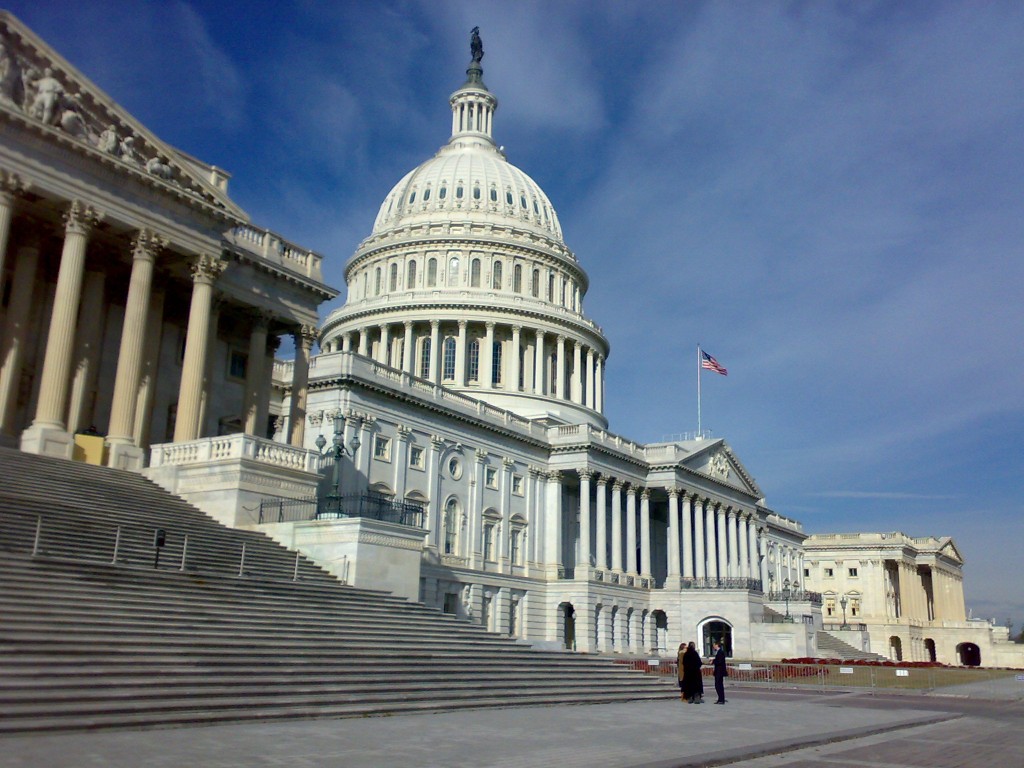
Senate bill to protect youth both invites and repels faith-based organizations in many federal programs
There is in the Senate strong pressure for quick passage of bill S. 2646, the Runaway and Homeless Youth and Trafficking Prevention Act (sponsor: Sen. Patrick Leahy, D-VT), which would reauthorize the long-standing Runaway and Homeless Youth Act, which funds government agencies and private organizations to provide needed services. Among other changes, S. 2646 would add this sweeping nondiscrimination requirement to the existing program:
SEC. 386B. NONDISCRIMINATION.
(a) IN GENERAL.–No person in the United States shall, on the basis of actual or perceived race, color, religion, national origin, sex, gender identity (as defined in section 249(c)(4) of title 18, United States Code), sexual orientation, or disability, be excluded from participation in, denied the benefits of, or subjected to discrimination under any program or activity funded in whole or in part with funds made available under this title, or any other program or activity funded in whole or in part with amounts appropriated for grants, cooperative agreements, or other assistance administered by the Administration for Children and Families of the Department of Health and Human Services.
In principle it is right that a nondiscrimination obligation is placed on organizations that receive this funding: after all, one major reason why young people run away from home and become vulnerable to trafficking is because of being ill-treated, including being discriminated against due to disfavored views or behavior.
But the language quoted above goes far beyond prohibiting providers of services from discriminating against young people who need help. It reaches into the private organizations themselves, applying its sweeping nondiscrimination requirements to their internal operations, all of a sudden prohibiting them from engaging in otherwise legal and long-standing practices.
And its chilling effect on faith-based participation would go very far beyond the particular program named in the bill. Notice the last lines of the provision, applying the broad nondiscrimination requirement far beyond the named program to all grant programs operated by a major section of the huge federal Department of Health and Human Services. That major section — the Administration for Children and Families — administers the federal welfare program (TANF), child-care funding for low-income families, refugee resettlement programs, abstinence programs, adoption and foster-care funding, marriage-strengthening and fatherhood programs, and much, much more. These are all federal programs that have welcomed the extensive participation of faith-based service providers, but their involvement would be chilled by this provision.
The provision would ban the common practice of faith-based organizations assessing the religious compatibility of potential employees before hiring them — even though this “religious staffing freedom” is built into the half-century old landmark Civil Rights Act. To take part in a program with this sweeping nondiscrimination provision, the religious organization would have to appeal to the Religious Freedom Restoration Act (RFRA), and hope that government officials would understand RFRA and the religious staffing freedom. That’s because this nondiscrimination provision doesn’t have an exemption for religious staffing by religious organizations, even though that practice is legal and widespread.
The application of the ban on sexual orientation discrimination to faith-based organizations would also suppress their participation. When they staff by religion, they are seeking employees who embody and reflect the religious and moral values of the organization and its faith, and so they watch for faithful beliefs and also faithful conduct. But that common practice is subjected to second-guessing by this provision. The organization’s religious staffing decisions, protected by RFRA, might well be challenged by a job applicant who claims that a decision was an exercise of illegal sexual orientation discrimination, even though the sexual conduct code is applied to all employees.
A faith-based organization that, quite legally, takes account of religion when selecting employees and which requires those employees to live up to a conservative sexual ethic, would have two choices: (1) forgo participation in this funding, no matter how excellent it may be in serving homeless youth and stopping human trafficking or providing any of a very wide range of other services, and no matter how much of its own money it adds to the federal funding; or (2) abandon the human resources policy that it adopted to ensure that all of its staff is attuned to the organization’s faith-shaped way of serving.
The Senate should revisit the language before voting on the bill and sending it to the House and rewrite the nondiscrimination requirement to focus it where it belongs: protecting homeless youth, ensuring that they get the services they need. Focus it tightly to protect the youth while not excluding faith-based service providers. Focus it narrowly on the named program rather than applying it without careful examination to a broad span of federal funding for social services.
